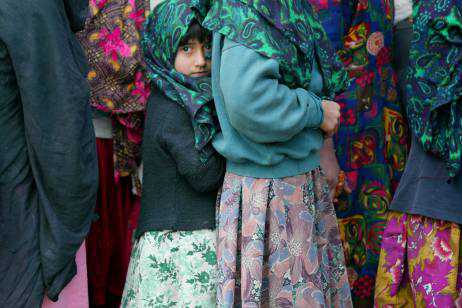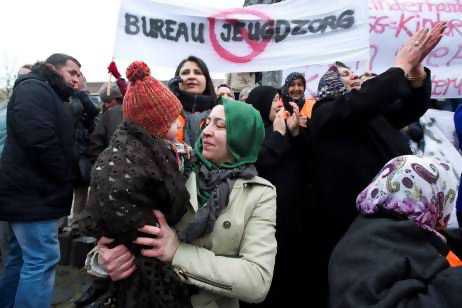İslam’da Evlat Edinme Yasak mı?

US scholars scrutinise Islamic adoption ban
Sharmila Devi
NEW YORK // The widely held belief that adoption is banned under Islamic law is being examined by Islamic scholars and child welfare advocates in the United States in a process that may lead to more American Muslim families being able to care for orphans.
Topic United States
A study of the issue is expected early next year from the Shura Council of the Women’s Islamic Initiative in Spirituality and Equality (Wise). The initiative is sponsored by the American Society for Muslim Advancement, a group founded by Daisy Khan and Imam Feisal Abdul Rauf, who plans to open an Islamic centre near the New York site of the World Trade Center.
The report was expected to examine Islamic law and kafalah, a kind of guardianship or “unlimited entrustment” resembling foster care that does not cut the ties between orphans and their biological families in the way that western-style adoption does. The Prophet Mohammed was an orphan himself and was cared for by extended family. The Quran says a child’s biological family must never be hidden.
“The report will look to combine compassion and justice and what it means to work in the best interest of the child,” said a spokeswoman for Wise. “It will put the emphasis on intention and some Muslim families may find arguments in it that would ease their hearts.”
The decision to consult Wise’s Shura Council to find out why American Muslim families are reluctant to adopt was made by Helene Lauffer, associate executive director of Spence-Chapin, a US agency that has offered adoption services since 1908.
“We’re always looking to where else we can develop a programme,” she said. “We saw there was a huge swathe of the world where there was a tremendous need. There are tens of thousands of children growing up without permanent families in institutions or on the streets and many are in Muslim-majority countries. We began to think about the barriers to adoption, about guardianship and about how Muslim families living in the US interpret the tenets of their faith.”
About six months ago, she met Ms Khan, who agreed to examine the issue. Wise’s Shura Council is made up of 26 Islamic scholars and experts based in 13 countries including Algeria, Egypt, Indonesia, Turkey and the United States. It has previously examined issues such as domestic violence, female genital cutting and honour crimes.
Inter-country adoptions are considered a last resort after the chances of placing an orphan with extended family are exhausted. Meanwhile, there are a growing number of US Muslim families who would like to care for a child, particularly those from Iraq and Afghanistan.
The number of orphans worldwide has been estimated at 143 million, said Ms Lauffer. But inter-country adoptions peaked at 40,000 in 2004 and 22,000 of those children were adopted by US families. The number has since declined, according to the US National Council for Adoption, a non-profit group.
Chuck Johnson, the chief executive of the council, said he welcomed any initiative that would comply with the Islamic injunction to help orphans. “We already have open adoption in America where children maintain links with their families and Muslim countries could set their own rules as to how that might work,” he said.
“I’m very excited to see a dialogue beginning and it’s incumbent upon child welfare advocates to continue that dialogue.”
Inter-country adoptions are governed by the Hague Convention on Adoption, which works to ensure that the adoptions are in the best interests of children. Countries are free to set their own conditions, such as any religious requirements.
The UAE is not a signatory to the convention. The website of the US State Department said it did not maintain files on the adoption process in the UAE because adoptions were so rare, saying there were fewer than five adoptions by American citizen parents in the past five years.
via US scholars scrutinise Islamic adoption ban – The National.


